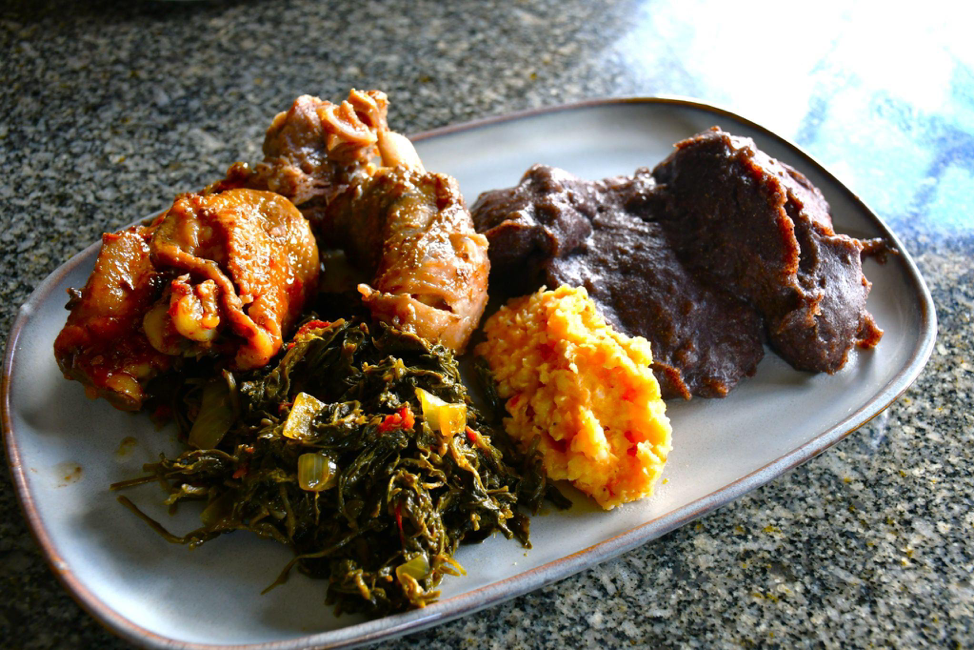
Ndakaitei Chigonye Makuvara (52), a small-scale farmer from Jeri Village in Bikita district says it was a brush with death that awakened her, causing her to remember the safe, healthy, nutritious traditional food she had once known but had somehow grown to have little regard for.
She says her transformation began two decades ago after she suffered a stroke at the age of 32. Following her diagnosis, doctors advised her to adopt a healthier, nutrient-rich diet, guidance that led her back to the traditional meals of her upbringing.
“When I was 32, I suffered a stroke on my left side. The doctors encouraged me to eat traditional meals rich in nutrients. Since then, I have made it a point to only eat traditional foods like sadza made from sorghum, and finger millet,” Ndakaitei says.
Ndakaitei says in her early childhood, traditional meals were the norm but as she grew up she substituted them with unhealthy food.
“I grew up eating traditional foods, but as I got older, I started substituting those healthy options with unhealthy eating habits. As a result, my health was affected,” she says.
Her personal journey to remember what she used to eat has evolved into a community mission. With support from PELUM Zimbabwe partner, Zimbabwe Smallholder Organic Farmers’ Forum (ZIMSOFF), Ndakaitei became an active participant in events like the Bikita Good Seed and Food Festival, where she and fellow farmers proudly exhibit and advocate for traditional grains and meals.
“Through the decentralised festivals, many people are being drawn to growing traditional grains. Every year, we gather at festivals to share traditional meals with others and children in our community. When we share these meals, we are not just consuming food, we are reinforcing our bonds and encouraging others to embrace traditional foods.” she says.
Ndakaitei’s advocacy work, especially alongside other women, has helped shift mindsets in her village. More farmers are committing to growing traditional crops like millet, sorghum, and groundnuts not just for sustenance, but as a way of preserving cultural heritage and improving food security.
“After the festival, many people and farmers commit to growing more traditional crops, and the youth are gradually increasing their involvement in this effort. Now, even children love and enjoy our traditional meals. Our community has changed for the better. Farmers who grow traditional crops have improved our food supply, and nobody goes to bed hungry,” she says.
Charity Mugeje (55), another farmer from the area, says she has also observed the same positive shift.
“Traditional meals are becoming the norm again in our community because of how they are being promoted through district festivals, especially among children. Events like the Good Seed and Food Festivals are crucial in making this happen. Our children are now adapting to eating traditional foods. As women in our homes, we are actively teaching our children to cook these traditional dishes, ensuring they understand the cultural significance behind each meal,” she says.
The impact extends beyond farming and household nutrition. Philomina Mlambo (54), a teacher from Mazungunye High School, notes how these festivals are also sparking entrepreneurship among young people.
“I am excited to see how the district Good Seed and Food Festivals are playing a vital role in fostering entrepreneurship among our youth. These events provide a platform for young people to showcase their cooking skills and traditional food products, allowing them to connect with the community and potential customers,” she says.
What started as a personal health journey for Ndakaitei has grown into a grassroots movement that is reshaping the food culture in Jeri Village. Thanks to her advocacy efforts and the support from ZIMSOFF, local women, and dedicated educators, traditional foods are no longer relics of the past but are now the foundation of a healthier, more sustainable future.







